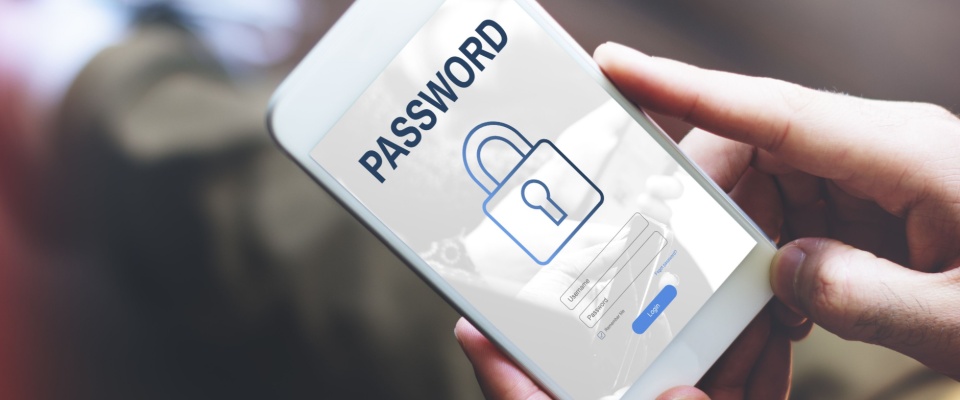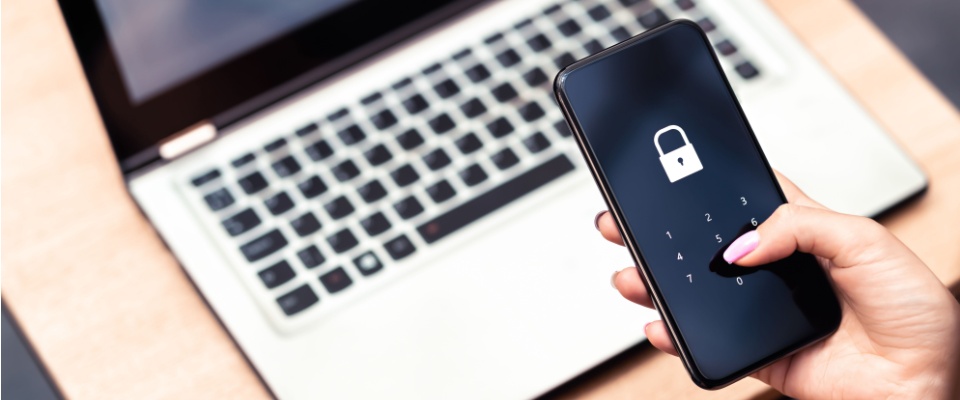9 Identity Theft Protection Tips Every Apartment Renter Should Know
Share this article:
Prepared in partnership with IdentityIQ.
Apartment living offers plenty of conveniences: central locations, community amenities, professional management, and more. But it also introduces unique risks when it comes to protecting your personal information.
From shared mailrooms and unsecured Wi-Fi networks to the complexities of living with roommates, renters face several vulnerabilities that can make them attractive targets for identity thieves.
In this post, we’re sharing what every renter should know about identity theft protection and what steps you can take right now to help keep your identity safe. But first, let’s go over why identity theft is a risk you need to avoid.
Why would someone want your identity?
Your identity is more valuable than you might think. With just a few pieces of personal information like your name, Social Security number, address, or financial account details, a criminal can commit a wide range of fraud. They might open credit cards in your name, apply for loans, file false tax returns, drain your bank accounts, or even receive medical care using your insurance.
Identity theft is not always about large-scale schemes. Often, criminals take advantage of small lapses in your personal security. Even something as simple as an unattended document, an unsecured Wi-Fi network, or a misplaced package can lead to long-term damage to your credit, finances, and peace of mind.
But what if you don’t have great credit?
Many people assume that poor credit makes them less attractive to identity thieves, but that is far from true.

Even if your credit isn’t great, criminals can:
- Open accounts with alternative lenders or payday loan providers that don’t require high credit scores.
- File false tax returns to claim refunds in your name.
- Access government benefits fraudulently under your Social Security number.
- Use your identity to commit crimes, leaving you to deal with the consequences.
- Create synthetic identities by combining your information with someone else’s to build a new credit profile.
In many cases, identity thieves aren’t looking for someone with perfect credit — they’re looking for easy access. If your information is unsecured, that makes you a target, regardless of your creditworthiness.
Why apartment living puts renters at increased risk of identity theft
Living in close proximity to others can make your personal data more exposed, and having your identity stolen could cost you your rent.
According to recent statistics, there were over 4.4 million cases of identity theft reported in 2022, and the average person lost over $1,100 to that criminal activity.
Here are just some of the identity theft risks that are more common in apartment settings:
- Shared or unsecured mail areas where sensitive documents can be intercepted
- Unprotected or public Wi-Fi networks that leave your data vulnerable
- Roommates who may not share your level of privacy awareness
- Trash disposal areas that are easy targets for dumpster divers
- Shared hallways and entry points where packages and personal documents can be stolen
How to protect yourself from identity theft no matter where you live
Understanding identity theft risks is the first step toward protecting yourself. Here are nine things you can do to help reduce those risks.
1. Secure your Wi-Fi network
Your Wi-Fi network is the gateway to your personal information. If it’s not secured, hackers nearby can potentially intercept your internet traffic and gain access to your devices and data.

What to do:
- Use a strong, unique password for your home Wi-Fi network.
- Avoid sharing your Wi-Fi password, and change it frequently.
- Change your router’s default username and password.
- Enable network encryption (WPA3 or WPA2).
- Use a virtual private network (VPN), especially if you’re working remotely.
- Avoid conducting sensitive activities on public Wi-Fi.
2. Protect your mail and packages
Apartment mailrooms and package delivery areas are often accessible to multiple people, making them vulnerable to theft. Criminals may steal mail to gain access to bank statements, credit card offers, or account credentials.
What to do:
- Retrieve your mail daily, and don’t dispose of anything in the mail room.
- Sign up for electronic statements and billing whenever possible.
- Use secure mail and package lockers if available.
- Track your deliveries and pick up packages promptly.
- If you’re away, request a mail hold from USPS.
3. Be selective with roommates
Roommates can be great for splitting rent, but not everyone is careful with sensitive information. Even unintentional sharing of your mail or documents can lead to serious consequences.
What to do:
- Conduct background checks or request references before moving in with someone new.
- Keep personal documents, checkbooks, and devices in a locked drawer or safe.
- Establish an agreement around mail handling, shared spaces, and access to your Wi-Fi network.
4. Use a shredder for documents and old cards
One person’s trash is another person’s treasure, especially when it comes to identity thieves looking for financial documents, account numbers, or personal info.

What to do:
- Use a cross-cut shredder to destroy any paper with sensitive information (such as bank statements, credit card offers, expired IDs, or medical records).
- Shred expired credit cards or IDs instead of tossing them in the trash.
5. Don’t leave personal information in shared spaces
Mail, tax forms, insurance documents, and laptops with saved passwords should never be left out in shared living areas. A quick photo or copied number is all it takes for someone to steal your identity.
What to do:
- Store sensitive items in your private space, preferably locked.
- Don’t leave phones or computers unattended and unlocked in common areas.
- Avoid writing down passwords and leaving them in visible places.
6. Watch out for QR code and package scams
Scammers increasingly use fake QR codes and delivery notices to lure victims into visiting phishing websites or downloading malicious software.
What to do:
- Don’t scan QR codes from random flyers, door tags, or text messages.
- Verify package delivery messages by going directly to the carrier’s website.
- Be cautious of texts or emails that pressure you to act urgently.
7. Use strong passwords and enable MFA
Weak passwords and reused login credentials are among the top ways identity thieves break into your accounts.
What to do:
- Create unique passwords that include letters, numbers, and special characters.
- Use a password manager to keep track of login details.
- Enable multi-factor authentication (MFA) on your financial, email, and shopping accounts.

8. Pay bills through secure channels
Renters often pay multiple bills online each month, including rent, internet, utilities, subscriptions, and more. Each payment is a chance for cybercriminals to intercept your financial data.
What to do:
- Only pay rent and bills through secure, verified portals like RentCafe resident portal.
- Don’t click payment links in emails or texts unless you are expecting them.
- Bookmark official bill payment websites and use them directly.
9. Know what to do if you become a victim
Identity theft can happen to anyone, even the most cautious among us. If it does happen, the most important thing is to act quickly.
What to do:
- Report the fraud to the Federal Trade Commission (FTC) at IdentityTheft.gov.
- Freeze your credit with all three major credit bureaus (Equifax, Experian, and TransUnion).
- File a police report to help document the activity.
- Notify your bank and credit card companies. Many banks or credit card companies will ask you to file reports with the police, FTC, and/or credit bureaus before they take action.
- Document all suspicious activity and keep copies of communication.
- Enlist the help of an identity theft protection service to monitor for ongoing signs of fraud or identity theft.
Most importantly, don’t blame yourself. Identity theft is unfortunately very common, and acting quickly is the best way to limit the damage.

How RentCafe and IdentityIQ help renters stay protected
Renters in participating RentCafe properties can enroll in IdentityIQ Credit Advantage membership This proactive layer of protection helps you catch fraud early and respond quickly if something goes wrong.
IdentityIQ membership includes:
- Real-time credit monitoring and alerts
- Dark web monitoring and alerts
- Industry-leading identity theft protection and restoration
- $1 million identity theft insurance, underwritten by AIG
- Access to your credit reports and scores
- Utility payment reporting to the three major credit bureaus
- Budgeting platform and financial wellness tools
- And more
It’s easy to enroll, and coverage begins right away. Not in a participating RentCafe property? You can still get industry-leading identity theft protection right away. Learn more about IdentityIQ membership here.
Final thoughts: Stay empowered through awareness
Apartment living doesn’t have to come with increased identity theft risk. By adopting simple, renter-friendly security practices and enrolling in IdentityIQ Credit Advantage through RentCafe, you can protect yourself against one of today’s fastest-growing crimes.
Share this article:
Hannah Love is the Growth Content Manager at IdentityIQ, a partner of RentCafe, where she blends over 10 years of writing and SEO experience to help brands connect and grow. With experience spanning fintech, education, personal development, and more, she creates high-performing content that is clear, useful, and meaningful.
The Ready Renter has your back
Tips, news, and research curated for renters, straight to your inbox.




Related posts
Subscribe to
The Ready Renter newsletter







